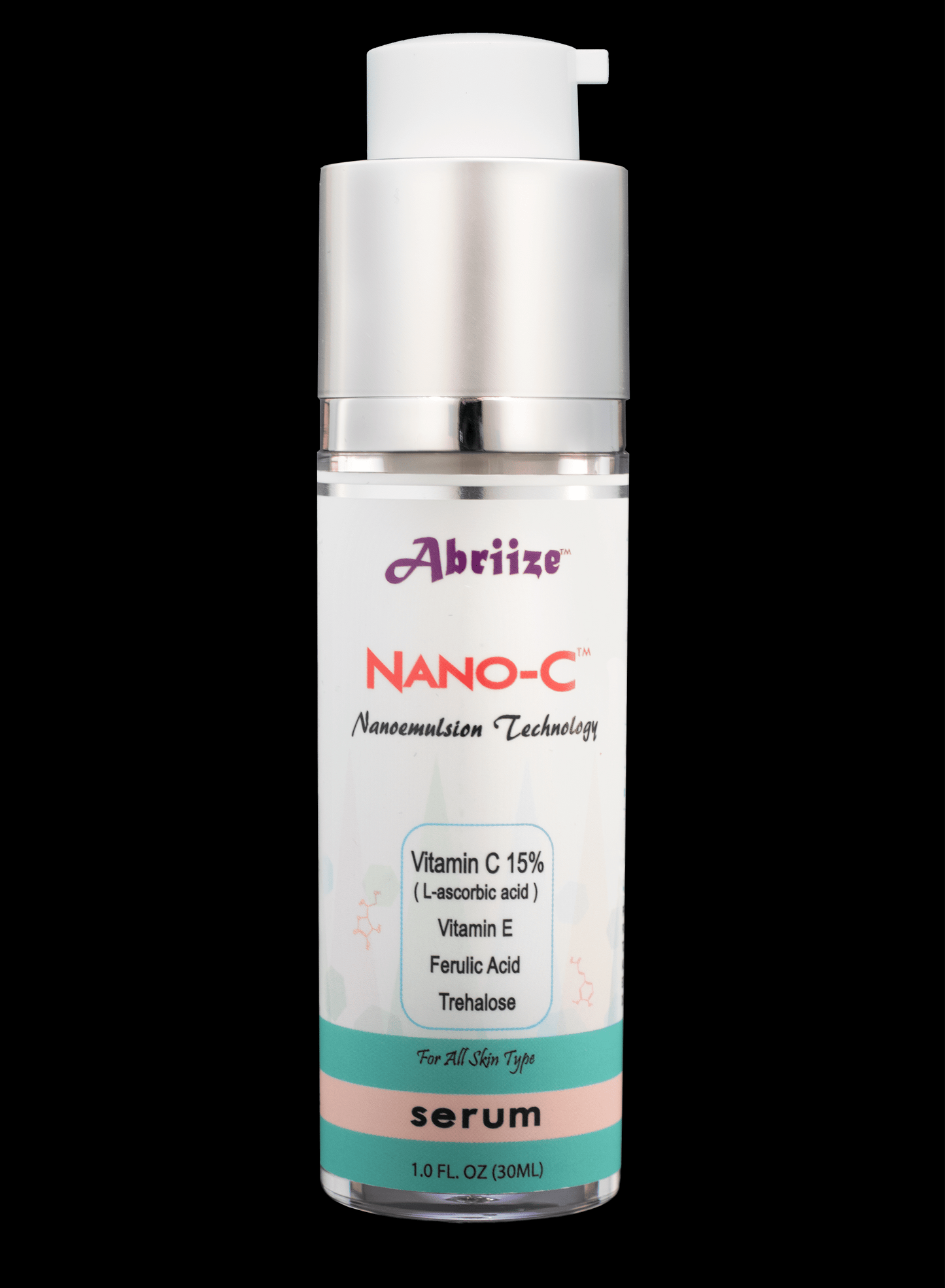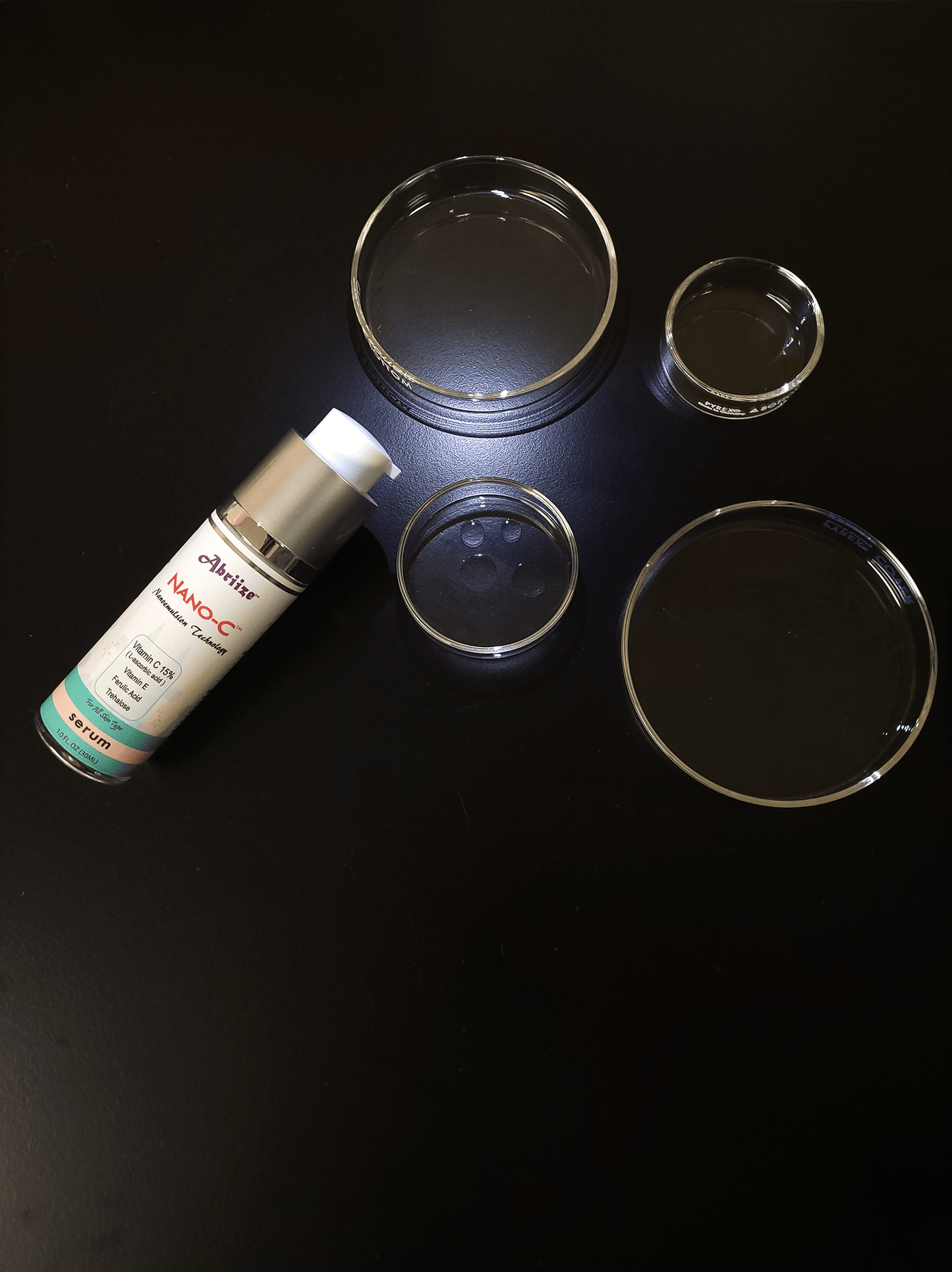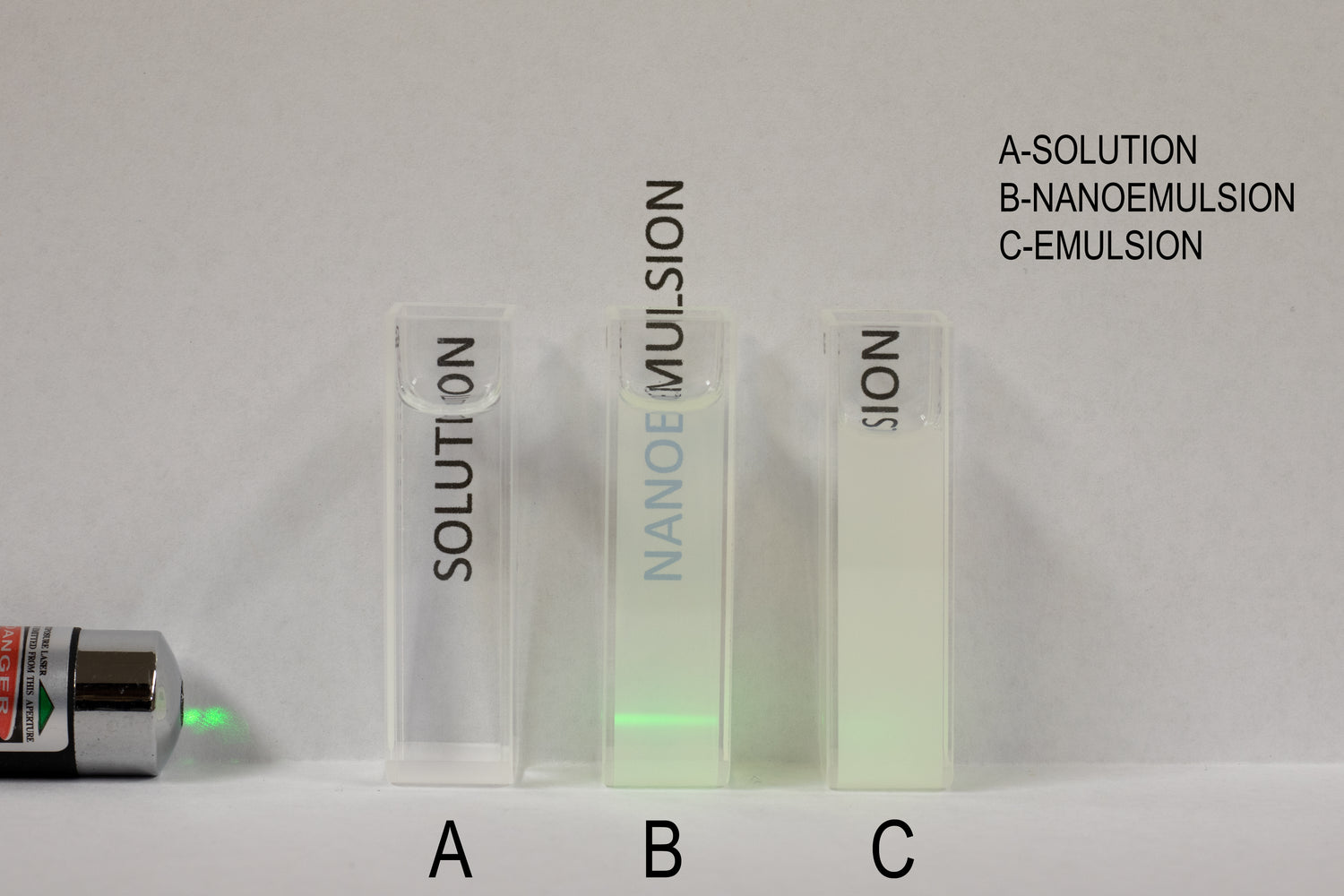







Why Nano-C?
Our Nano-C serum is a nanoemulsion!
Nanoemulsion is the latest innovation in skincare applications known for its superior skin delivery ability. It has a much smaller size of droplets to enhance skin absorption and bioavailability of active ingredients.
Our Nano-C nanoemulsion serum is specially formulated to protect the antioxidant molecules by forming submicron droplets, resulting in a lightweight formula that quickly absorbs deeper into your skin.
To check if it is a nanoemulsion, the solution should appear clear or semi-clear by shining a laser light through the solution.
- If the light beam is not visible, it is a solution (Cuvette A).
- If the light beam is distinct and sharp, it is a nanoemulsion (Cuvette B).
- If the light beam is scattered and spread out, it is a milky emulsion (Cuvette C).
The size of the molecules causes the differences in light behavior as shown in the figure to the right.
Collapsible content
FAQs
Q: Can I store my serum in the refrigerator?
A: Yes, if possible, we recommend to store Abriize Nano-C serums in the refrigerator to enhance the shelf life and freshness of Vitamin
C. However, please do not store Nano-C serums at extreme temperatures, such as near a heat source, in direct sunlight or in the freezer.
Q: What is Nano-C expiration date?
A: Our shelf-life stability studies have demonstrated that Abriize
Nano-C serums last 3 months. The color may change slightly to yellow, but the formulation will still be effective. Once the serum has turned a dark yellow to brown color, the serum has oxidized and please discard the serum.
Q: Can I exfoliate before applying the serum?
A: Yes, exfoliation removes the top dead cell layers and will help to absorb the Abriize Nano-C serum even better. Please be aware you may experience some stinging sensations after exfoliation.
Q: Is it okay to use Nano-C serums during the day?
A: Nano-C serums are great during the day and the literature(s) states Vitamin C and E works synergistically to help increase the effectiveness of your sunscreens.
Q: Can I use an acne face wash such as benzoyl peroxide right before applying Vitamin C serum?
A: Because benzoyl peroxide is basic and Vitamin C serums are acidic in order to be effective and maintain freshness, the Abriize Nano-C serum will not work effectively with benzoyl peroxide due to the pH difference, i.e., peroxide (oxidizer) vs
Vitamin C (anti-oxidizer).
Q: Can I use an acid peel like azelaic acid or AHA/BHA solution in conjunction with Vitamin C serum?
A: We would not recommend using an acid peel together with
Nano-C serums because both are acidic and will irritate your skin due to over exfoliation.
Q: Can I use Nano-C serums while pregnant or nursing?
A: Vitamin C serums are generally safe for pregnant or nursing moms. However, please consult your physician for specific recommendations.
Q: When will I start seeing results after using Nano-C serum?
A: Based on our clinical trial studies, our participants experienced skin tightening effect after about 3 to 4 weeks, and improvements in dark spots after about 3 months.
Q: Is it safe to use Nano-C on sensitive skin?
A: We recommend for starters who has never used a Vitamin C
serum to start with our Abriize 10% Nano-C serum, then gradually acclimate to Abriize 15% Nano-C serum and Abriize 20% Nano-C serum. In the literature, our skin can maximally accommodate up to 20% Vitamin C before we get diminishing returns.
Q: What is the scent of Nano-C serum?
A: Nano-C serums have a light citrus scent from the Vitamin C only because we do not add any fragrance to avoid skin irritation.
Q: I have oily skin, will Nano-C serum irritate my skin?
A: For oily skin, Nano-C serums are safe. However, we would recommend not to combine certain products with high pH levels such as benzoyl peroxide face wash. We would recommend using benzoyl peroxide one day and Nano-C serums or any other Vitamin C serums the next day.
Q: Can I combine a retinoid with Nano-C serum?
A: We would recommend using Nano-C serums during the day and retinoids at night since retinoids increase skin turnovers and should avoid sun exposures.







